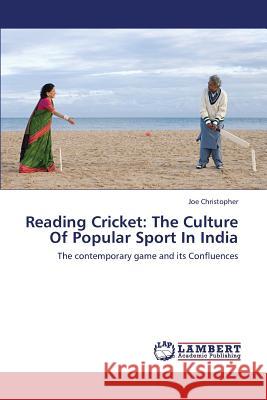Reading Cricket: The Culture of Popular Sport in India » książka
Reading Cricket: The Culture of Popular Sport in India
ISBN-13: 9783848429745 / Angielski / Miękka / 2012 / 120 str.
The book questions the relevance of cricket-a 'hard cultural form' which was introduced during the colonial period, in the contemporary, post reform India. Through a discussion on sports films, and the Indian Premier League-the successful Twenty-twenty cricket league, the book locates cricket a midst the transformation in the imagination of the Indian nation. In India, post the initiation of the economic reforms, it demonstrates, cricket has become a convenient tool to market nationalism and consumerism and has been appropriated by business houses, the film industry and various governments. Such appropriation, the author argues resulted in cricket being constructed as the 'national' game of India. The book explores the effects that the confluence of cricket, popular film and 'paid' sports channels has had on Indian public sphere. It argues that cricket's affiliation with nationalism on the one hand and with global capital on the other, has facilitated the construction of a nexus between cricket, cinema and satellite television. It demonstrates that cricket also had to undergo a transformation both in its form and in its discourse to suit the political economy of the new millennium.
The book questions the relevance of cricket-a hard cultural form which was introduced during the colonial period, in the contemporary, post reform India. Through a discussion on sports films, and the Indian Premier League-the successful Twenty-twenty cricket league, the book locates cricket a midst the transformation in the imagination of the Indian nation. In India, post the initiation of the economic reforms, it demonstrates, cricket has become a convenient tool to market nationalism and consumerism and has been appropriated by business houses, the film industry and various governments. Such appropriation, the author argues resulted in cricket being constructed as the national game of India. The book explores the effects that the confluence of cricket, popular film and paid sports channels has had on Indian public sphere. It argues that crickets affiliation with nationalism on the one hand and with global capital on the other, has facilitated the construction of a nexus between cricket, cinema and satellite television. It demonstrates that cricket also had to undergo a transformation both in its form and in its discourse to suit the political economy of the new millennium.











